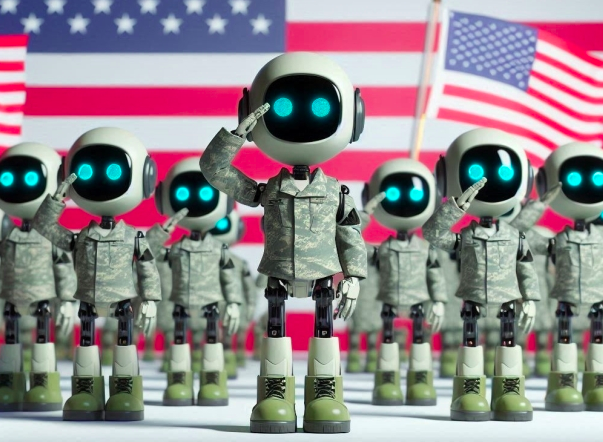Meta’s Llama AI Model Takes Efficiency to the Next Level
Meta has rolled out its final major AI update of the year, with CEO Mark Zuckerberg unveiling the new Llama 3.3 model, boasting 70 billion parameters. While slightly smaller than its predecessor, the 405-billion-parameter model, the Llama 3.3 offers similar performance with enhanced efficiency. Zuckerberg emphasized the model’s widespread adoption, claiming Llama is now the most downloaded AI model globally, surpassing 650 million downloads. Meta continues its push to keep Llama open-source, enabling developers to create innovative applications and solidifying the company’s position as a key player in the AI space.

Alongside its AI advancements, Meta is focusing on broader digital transformation with plans to expand its virtual reality (VR) offerings and develop a new AI data center in Louisiana. Zuckerberg also mentioned the company’s AI assistant has reached 600 million monthly active users, though questions remain about the level of engagement. While Meta’s AI tools are undeniably making waves, the true impact may be realized when these innovations integrate more seamlessly with users’ daily lives, particularly through VR and other interconnected platforms.
U.S. Military Integrates OpenAI Tech for Combat Operations
The U.S. military has made its first confirmed purchase of OpenAI technology, with U.S. Africa Command (AFRICOM) securing cloud services from Microsoft, which includes OpenAI’s AI tools. This move is part of AFRICOM’s $9 billion contract aimed at enhancing mission efficiency and decision-making across Africa. The purchase highlights the growing reliance on AI for processing vast data and improving operational capabilities in dynamic environments. AFRICOM sees OpenAI’s software, including machine learning and natural language processing, as critical for its mission.

Despite concerns over AI’s accuracy, this purchase marks a significant step in the Pentagon’s use of advanced technology for military operations. OpenAI’s tools, integrated through Microsoft’s Azure cloud, are now central to AFRICOM’s efforts to improve situational awareness and speed up decision-making. This move follows broader Pentagon efforts to harness AI for national security, though critics caution about the risks of using potentially flawed technology in high-stakes military contexts.
Google’s GenCast AI Model Surpasses Leading Weather Forecast System
Google’s DeepMind team has unveiled a groundbreaking AI model called GenCast, which they claim outperforms the European Centre for Medium-Range Weather Forecasts’ (ECMWF) ENS system, widely regarded as the top operational forecasting model. In a study published in Nature, DeepMind researchers demonstrated that GenCast, which uses a probabilistic approach by generating multiple weather predictions, was more accurate than ENS in forecasting weather for 2019, achieving a success rate of 97.2%.

GenCast represents a shift in weather prediction technology, moving beyond traditional deterministic models that provide a single forecast. Instead, it generates an ensemble of 50 or more predictions, offering a broader view of potential future weather scenarios. Google plans to integrate GenCast into tools like Google Search and Maps, allowing users to access real-time and historical forecasts, as well as enabling researchers to incorporate the model into their own weather studies.
Humanoids Summit 2024: Shaping the Future of Human-Robot Interaction
The highly anticipated Humanoids Summit 2024 is set to take place on December 11-12, 2024, bringing together the brightest minds in robotics, AI, and human-machine interaction. Held in a prominent tech hub, this summit will feature keynotes, panel discussions, and hands-on demonstrations of cutting-edge humanoid robots, showcasing the latest advancements in artificial intelligence and robotics. Industry leaders, researchers, and innovators will explore the potential of humanoid robots in sectors ranging from healthcare and education to entertainment and manufacturing, highlighting how these machines are poised to reshape our future.

With AI-driven robots becoming increasingly capable of mimicking human actions and behaviors, the Humanoids Summit aims to foster collaboration between academia, industry, and policymakers. Experts will discuss the ethical implications of humanoid robots, the challenges of human-robot integration, and the exciting possibilities these robots offer in everyday life. As humanoid technology evolves, this summit will be a critical platform for setting the stage for the next generation of intelligent machines, sparking conversations that will define the future of robotics and human interaction.
